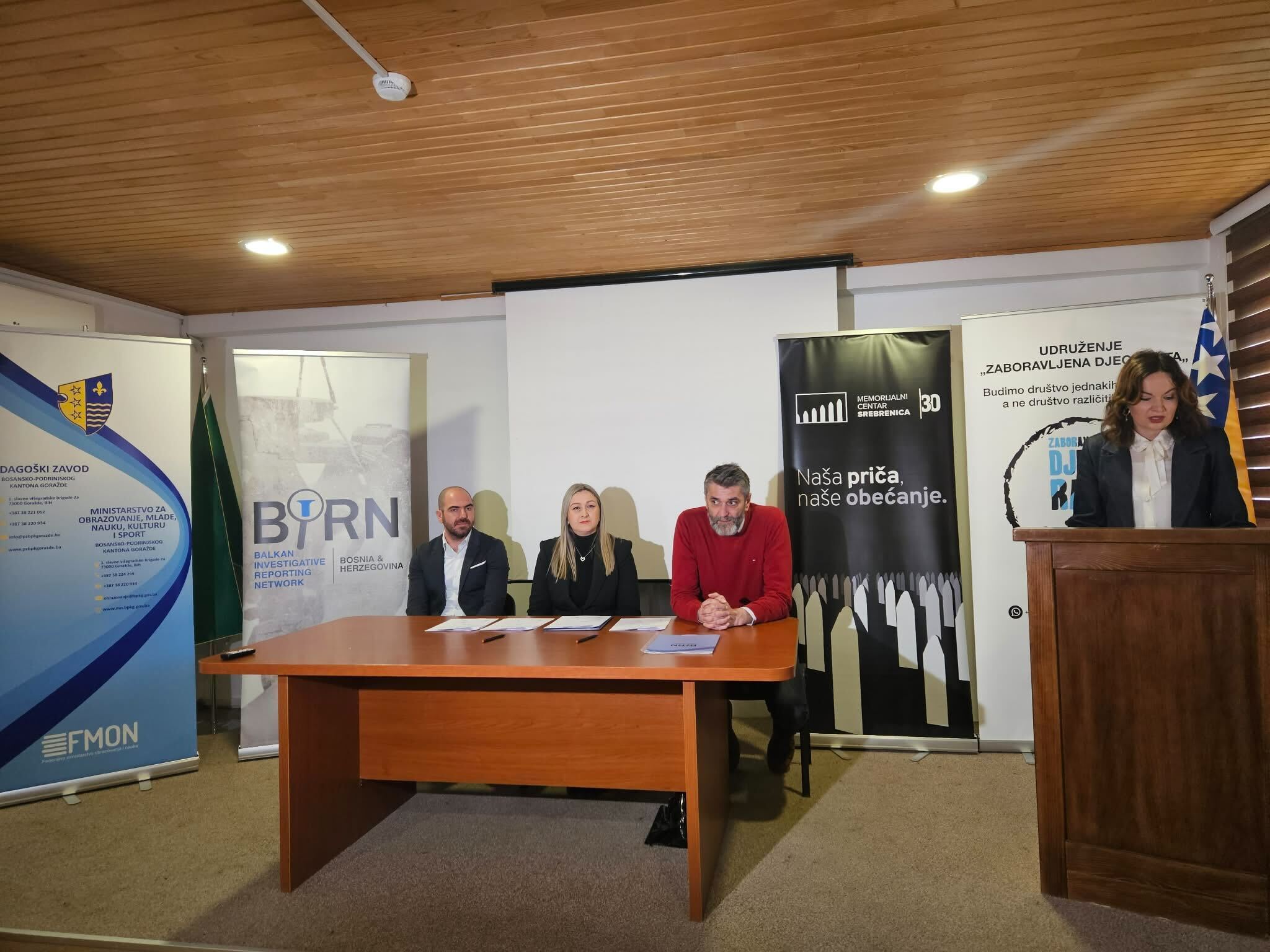This post is also available in: Bosnian
Disinformation – we were told during a visit to one of the most influential Ukrainian news outlets focused on exposing lies – is not just plain absence of truth but an opportunity to find out the unexpected truth.
“It was March 2014 when Yanukovich, our former president, left the country. Some strange events in Crimea just started. Before that moment, we didn’t pay attention to Russian disinformation,” said Ruslan Deynychenko, the director of StopFake, a fact-checking website uncovering pro-Russian disinformation. “We thought, who cares about Russian disinformation and what they show on their TV networks? But then we realized that was a huge mistake.”
According to Deynychenko, detailed investigations on disinformation may have some power to foresee future events. He referred specifically to March 2014 when Russian media was reporting on Ukrainian refugees in Russia despite, he said, there not being any.
Media narratives said that “thousands of Ukrainians were entering Russia and they wanted to escape from Ukraine, from neo-Nazis,” Deynychenko said. “When I started checking this information, I called the Russian Federal Immigration Service and asked how many Ukrainians asked for political asylum or how many refugees from Ukraine they have. The lady I spoke with said they had just five phone calls and there were no refugees.”
He said the official told him they had received an order to buy food, tents and supplies for refugees and they were carrying out the order.
“Several months later, when started ground operations in Donbas, these refugees appeared – they were prepared,” Deynychenko explained.
Prior to the full-scale invasion in 2022, StopFake discovered changing and increasingly aggressive rhetoric on Russian channels in regards to Ukraine, including open warmongering. Their assessment of the media at the time led StopFake to conclude that Vladimir Putin would have the support of the Russian public in the event of an invasion.
For years, the Russian TV network RT has produced videos and articles promoting false narratives concerning the war in Bosnia and Herzegovina. Detektor reported previously that Kremlin-controlled media such as RT often compare the murders of civilians and captives in Bucha near Kyiv with those in Srebrenica, calling both events faked by the West. Deniers of the war-time civilian deaths at the Markale market in Sarajevo also describe the massacre as fictional, in line with Moscow’s stance.
Russian media under the control of the Russian Ministry of Defence or those close to Vladimir Putin have recently intensified their focus on citizens of Bosnia and Herzegovina and Serbia. These media narratives often accuse NATO of creating potential conflicts and present Russian a factor for peace and stability.
Russian state media such as Sputnik have operated in Serbia for years and RT Balkans is available in Bosnia and Herzegovina. In late 2023, RT announced the opening of a newsroom in BiH.
Maria Avdeeva, a Ukrainian communications expert, says that it is important to check the information coming from pro-Russian media and to recognize manipulation.
“It is very important not to allow Russia to win in this stage, because when they do it, then they will for sure go to the next stage,” Avdeeva said.
Sowing disinformation on anonymous networks
Ukrainian citizens can no longer see many sources of Russian disinformation because Russian and pro-Russian media outlets are banned in the territory controlled by Kyiv. Instead of TV stations or websites, disinformation orchestrated by Russia is spread through other methods such as applications like Telegram.
In Ukraine, there are currently several government centers combatting Russian disinformation. Since the onset of the invasion, Maria Avdeeva, who works with the state news agency, has been detecting Russian disinformation and sharing explanations of it with her more than 150,000 followers on social media. In an interview with Detektor, she explained how Ukrainians discover Russian disinformation today and what citizens of Bosnia and Herzegovina could learn from the Ukrainian experience.
“The misinformation will generally appear in some Telegram channel or some local source that people don’t pay attention to. From there, this disinformation will be picked up later in the day by large Russian media news outlets who will quote, ‘As Donetsk media is saying, Ukraine is again shelling and killing people.’ After that some Russian officials will refer to this disinformation. At the end of the day, this will probably get to a Russian Ministry of Defence report, where they will say that this happened. It goes full circle,” Avdeeva explained, adding that disinformation is usually spread on Telegram.
Miroslava Markova, an analyst at the Ukrainian fact-checking platform VoxCheck, told Detektor that anonymity and a lack of control make Telegram perfect for spreading disinformation.
“A lot of authors of these channels stay anonymous and this platform allows them to do so, making them look like some kind of independent authors. A lot of Telegram channels are under the control of Russia and special services. We in Ukraine don’t have any power to go to Telegram and say: ‘please block some channels because they systematically spread disinformation or even hate speech at an extremely high level,’” Markova explained.
European countries are targets
 Maria Avdeeva. Photo: BIRN BiH
Maria Avdeeva. Photo: BIRN BiH
Citizens of Bosnia and Herzegovina and Serbia are increasingly using Telegram as a source of information. Avdeeva says that Russia tailors disinformation to suit different audiences; there are separate approaches for Russians, for audiences in occupied territories in Ukraine and for the West and other European countries.
“The battle against disinformation targeting the West is difficult. On one hand, we have free speech and legislation that allows everyone to express their opinions. On the other hand, we have Russia, which manipulates free speech and uses it against the West. Russia sees this as a weakness and tries to find holes that it can use to manipulate the information space,” said Avdeeva.
Markova follows media content in countries like Germany, Hungary, Poland and the Czech Republic. She believes Russia’s aim is not only to prevent support for Ukraine in fighting off the invasion, but also to help raise up political parties and movements in Europe that are essentially pro-Russian.
“The most widespread narratives about Ukraine attempt to sow distrust in Ukrainian authorities, they are corrupt, and that aid to Ukraine costs too much for your budget and weakens your military, and that you are becoming part of a ‘Third World War,’” said Markova.
According to Avdeeva, the aim of such manipulation is not necessarily to make you believe, but for a reader or viewer to become indecisive and for their view of the problem to become uncertain and vague.
“They just need you to become vague and say: ‘Probably there is something in there, probably not everything all that governmet is saying is true.’ After the fake narative about Ukrainian troops shelling their own cities had been shared, people started wondering whether it might actually happen. Of course, it quite quickly became obvious its just a complete lie,” Avdeeva said, adding that the highly functional Russian disinformation system operates 24 hours a day, seven days a week.
Checking facts is just a part of the fight, says Avdeeva, who noted that false Russian narratives, which are often spread by Russian state media, present a whole other problem.
“Those are the false stories on the basis of which they continue this war. For instance, when Russia says that Ukraine never existed and was always a part of the Russian Empire,” Avdeeva said.



